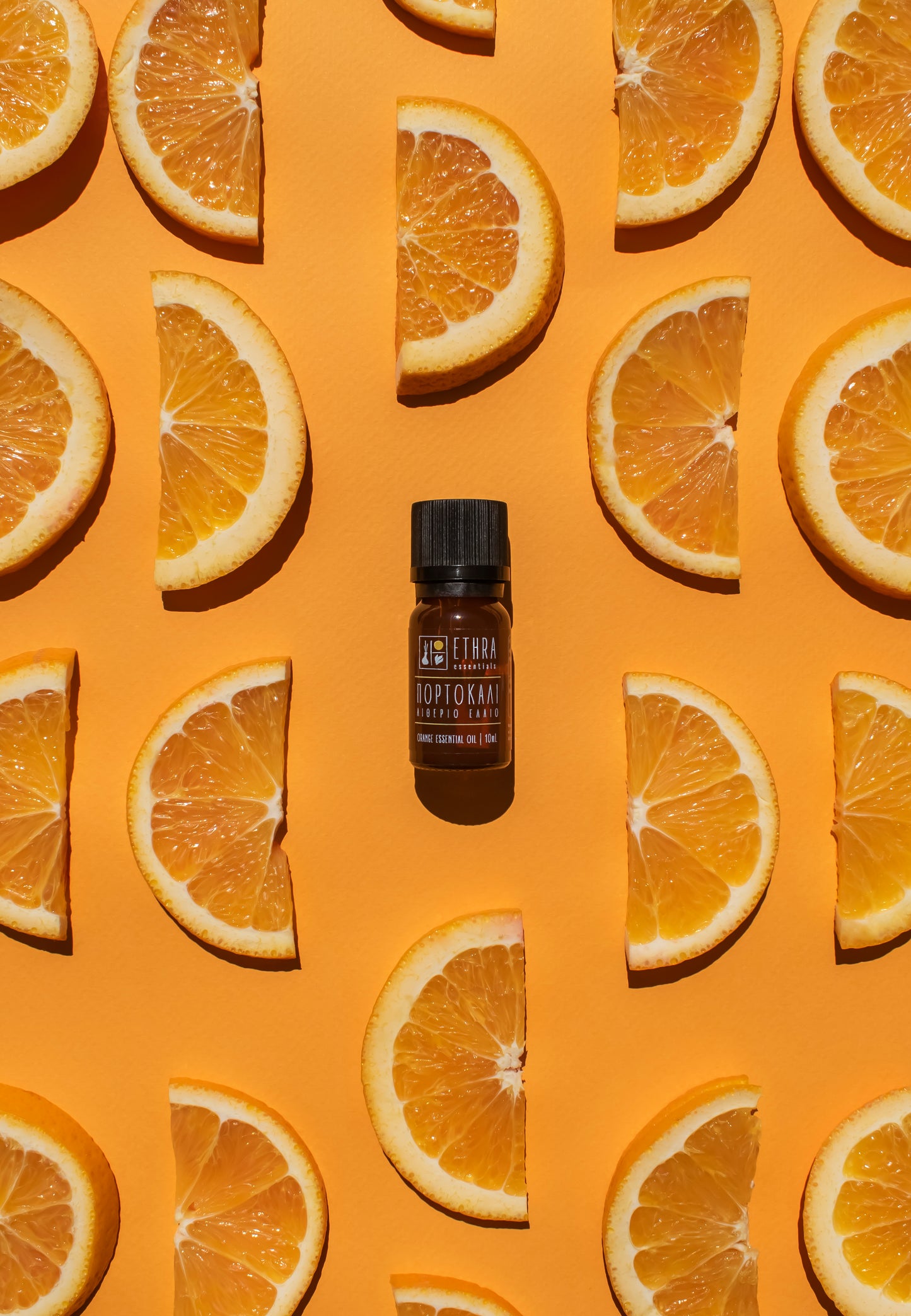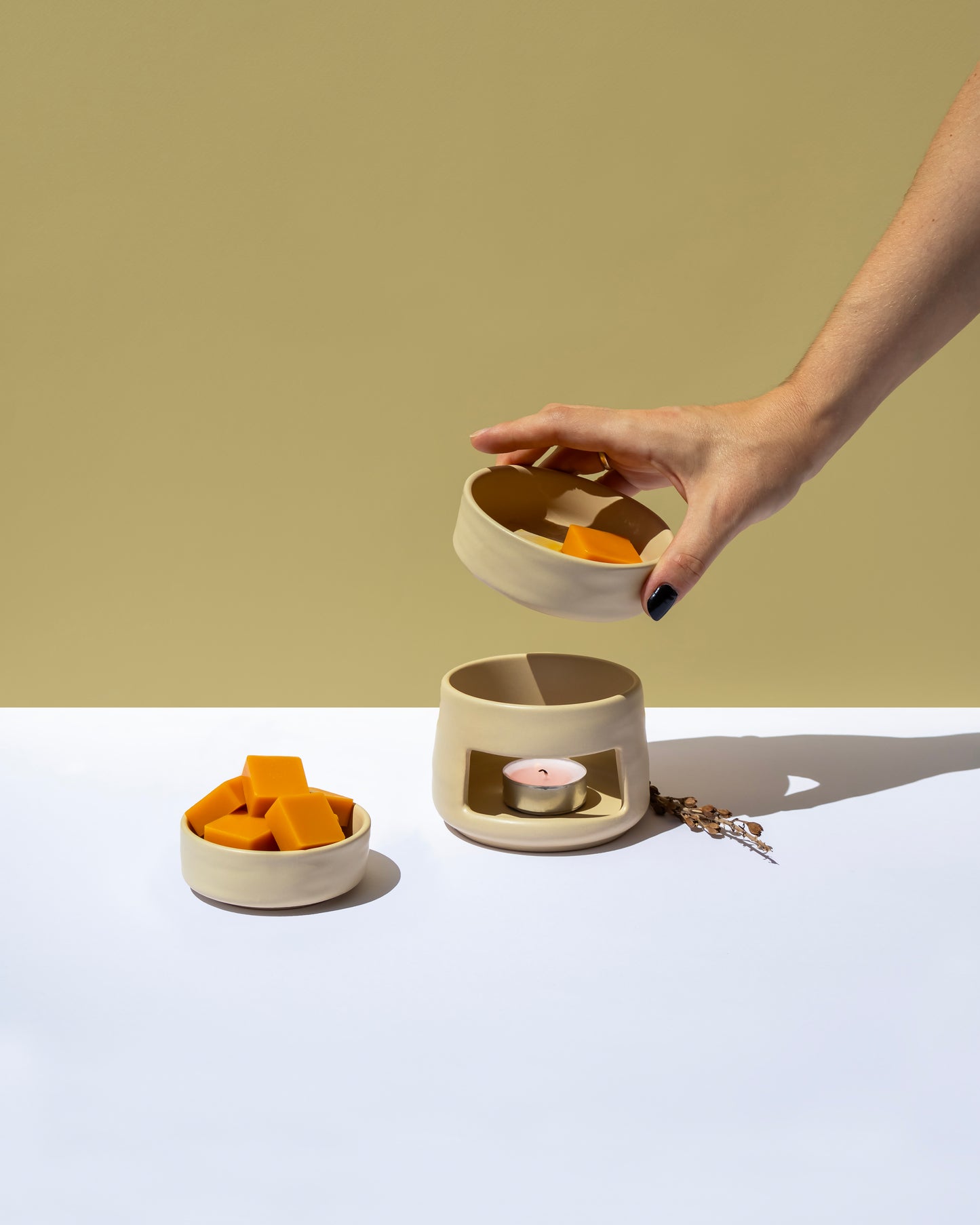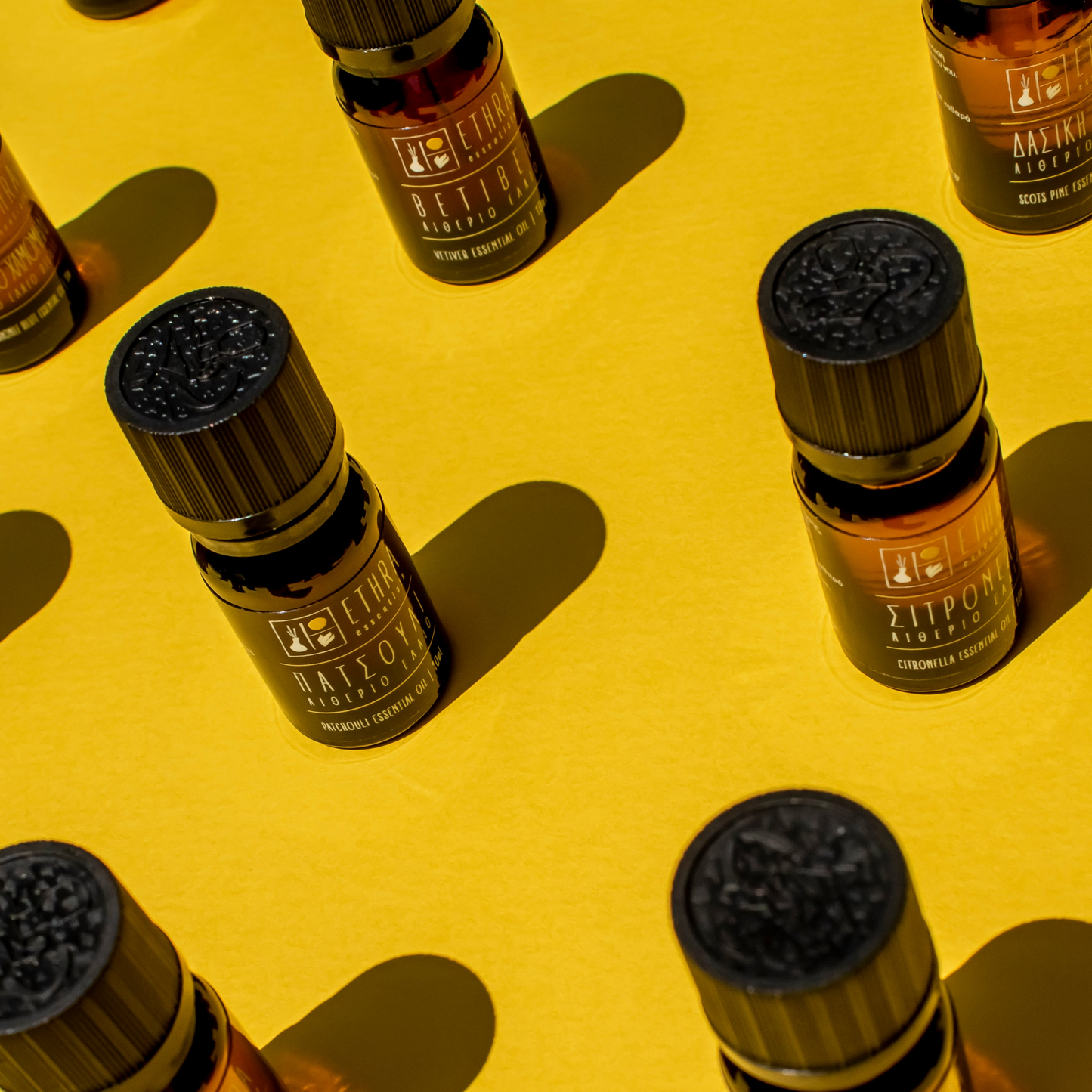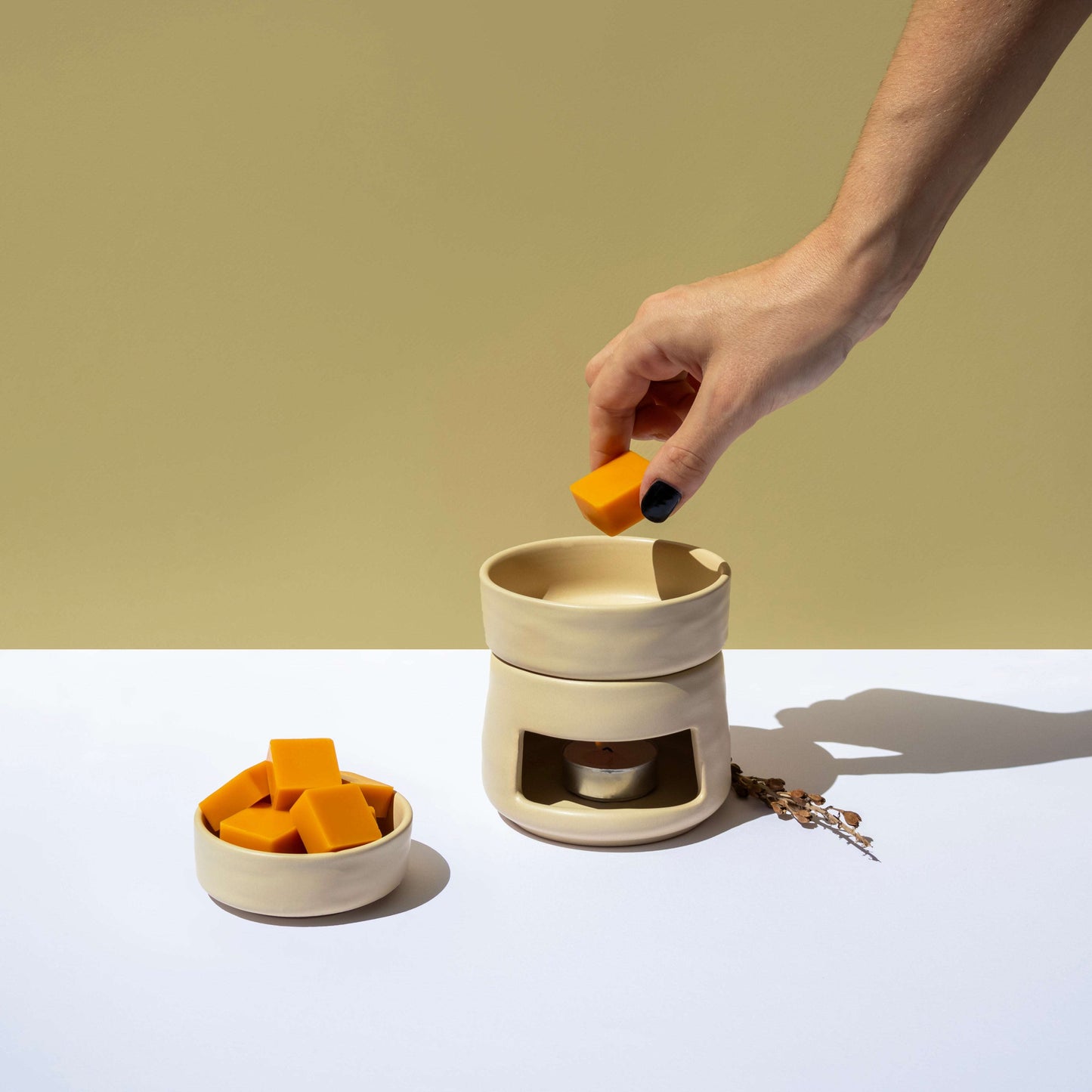Find them at a -15% discount with the purchase of 5 essential oils or more!

Ancient Civilizations and Aromatherapy | Middle East & Asia
Ancient Chinese Empire:
Ancient Chinese knowledge about the medicinal properties of plants was tremendously advanced. The foundations of "Traditional Chinese Medicine" (TCM) were herbal remedies, acupuncture and shiatsu, which have been around since 2500 BC.
The Yellow Emperor, Huang Ti, wrote "Internal Medicine" in 2800 BC. In this book he mentioned the causes and treatment of diseases as well as details of many plants and their herbal remedies.
China's greatest contribution to aromatherapy is citrus fruits. It is believed that almost all types of citrus originated from this country, eventually reaching the Mediterranean in the 10th century, via the Arabs.
In ancient times in China aromatherapy was known as "taking a dose of perfume". The Chinese filled small sachets with aromatic herbs and took them with them wherever they went and smelled them whenever they wanted.
From the Han Dynasty onwards, aromatherapy gained great popularity in Chinese medicine for its health-enhancing and disease-preventing functions. According to archaeological excavations, a large number of aromatherapy burners were found during the Han Dynasty, and these findings showed that during the Dang Dynasty, aromatherapy was given great attention. They used precious metals to make the smoker, which is divided into two layers and three layers. In the Song Dynasty a smoker was made with animal shapes to form a style.

For a time after the founding of the People's Republic of China, aromatherapy was frowned upon as a feudal superstition because you could neither see nor eat the fragrance.
According to traditional Chinese medicine, aroma entering the body through the mouth, nose and skin pores can improve the functions of internal organs and regulate qi and blood circulation.
With the help of smell, the human body achieves a balance between Yin and Yang and achieves a better self-repair mechanism.
According to the Inner Rule of Huangdi, the first Chinese classical physicians dating back 2,500 years ago, the environment in four seasons has quite a large effect on human health, but not as large as that of mood. Human beings have five main moods: anger, joy, sadness, anxiety and fear. Constant swings between moods or the lack of control over certain moods can be very damaging to a person's health. Quality fragrance can provide good mood, appetite, healthy sleep and healthy body.
Ancient India:
Traditional Indian medicine, known as Ayurveda (meaning "knowledge of life"), is the oldest form of medical practice in the world, with plants and plant extracts in continuous use there from at least 5000 years ago to the present day. In 2000 BC One of the oldest and most valuable books of plant records, the "Vedas", was written in India. This lists various uses of more than 700 plants and substances, including sandalwood, myrrh, coriander, ginger and cinnamon.
In Ayurveda, essential oils are used to balance the three doshas (Vata, Pitta, Kapha) and are classified and used based on their effect on body temperature and how it affects the doshas.

The Ayurvedic concept of doshas describes how bad habits, wrong diet, overwork, etc. they may cause relative deficiencies or excesses which cause an imbalance with respect to the physical constitution (prakriti) resulting in a current condition (vikriti) which may lead to disease.
For example, excess vata is blamed for mental, nervous and digestive disorders, including low energy and weakening of all body tissues. Similarly, excess pitta is blamed for blood toxicity, inflammation and infection. Excess kapha is blamed for increased mucus, weight, edema and lung disease, etc. The key to managing all doshas is taking care of vata, which is taught to regulate the other two.
Camphor, cinnamon, bergamot and cypress oils are warm and invigorating, sandalwood, jasmine and rose oils are stabilizing and calming. Vanilla, lavender, lemongrass, lemon, ginger and ylang-ylang oils have cleansing and detoxifying properties. Parsley, dill, cinnamon, coriander and lemongrass oils help to invigorate the body while cardamom, coriander, chamomile, juniper, sage and eucalyptus help fight pathogens and speed up the process of removing toxins.
Ancient Persia:
In ancient Persia, aromatherapy was extremely important in culture and medicine. Persian royalty and aristocrats used perfumes and essential oils to enhance their natural scent and create a pleasant aura.
In medicine, essential oils were used for therapeutic purposes. Doctors recommended the use of aromatic oils to relieve various ailments and enhance mental well-being. The Persians valued perfumes not only for health but also for the pleasant atmosphere they gave to their palaces.

In ancient Persia, disease was perceived as a product of evil. Ahriman and Ganak Mainyu were considered the main causes of disease, often associated with unpleasant odors and dirt. Evil, foul smells and stale air were believed to spread disease, while pure deities were associated with sweet smells. Therefore, perfumes were used according to the divine powers and aromatic substances, herbs and woods were used as a means of prevention to eliminate the causes of diseases and as a cure for certain mental and physical ailments.







